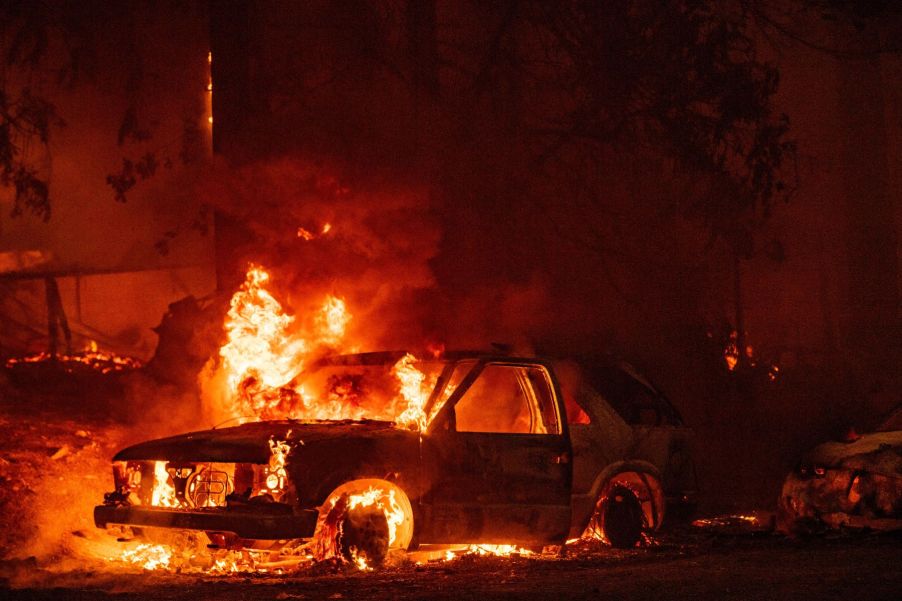
Your Car Is on Fire – What Should You Do?
Most people are daily drivers that depend on their vehicles. We are always on the move going to work, running errands, and traveling for pleasure. It is nice to have the freedom to travel where you want to go. However, the downside is that occasionally things can go wrong with our vehicle, making for car safety risks. Although it isn’t common, vehicles can, and sometimes do, catch on fire. Whether it is a mechanical or human error, part of learning about car safety should also include knowing what to do if your vehicle is on fire.
Four of the most common causes of car fires

Car fires are not usually just one single thing going wrong. It is also not usually manufacturer defects. It is often a combination of circumstances that can make a fire more likely to happen. The most common causes of car fires include:
- Poor maintenance: Under your vehicle’s hood, there is a volatile combination of heat, fuel, oil, and wires. In a perfect world, each of these things is kept separated well enough that they simply perform as they are supposed to.
- Vehicle accidents: Although not as common as maintenance issues, vehicle fires can happen due to an accident. The sudden impact can shake loose fuel lines and again, the combination of heat and fuel could prove to be a dangerous mixture.
- Overheating: Whether the engine or catalytic converter is overheating, too much heat can become dangerous. This also goes back to why maintaining your vehicle is important. An engine or a catalytic converter is designed to handle a lot of heat, but if you have other issues going on, it can become a fire hazard.
- Electrical system failure: Fires happen in our home because of electrical issues. Therefore, as more and more vehicles rely on electricity to power them, the risk for electrical fires is increasing and, unfortunately, electrical fires aren’t confined to just the space under your hood.
A vehicle fire can happen suddenly, being very unpredictable. Therefore, the most important thing you can do is learn the warning signs and what to do if you suspect that your vehicle may be a little too hot to handle.
Warning signs that a fire may be starting under your hood
According to State Farm, there may be some potential warning signs that your vehicle is at risk of a fire. Some of the biggest red flags include:
- Frequently having blown fuses
- Oil or fluid leaks under your vehicle
- Damaged wiring or hoses
- Rapid fluctuations in fuel or oil levels
- High engine temperatures
- Excessively loud exhaust system
- The scent of burning oil
- Smoke or the sweet smell of coolants
Knowing the warning signs of a fire is the easiest way to ensure that you and your family are riding safely. However, if you suspect a problem under your hood, you should avoid driving until the issue is resolved.
What should you do if your car catching on fire?
Not all things can be predicted, especially not car fires, but how you handle the situation can save your life. You need to do several things if you feel that your vehicle has caught on fire.
Step 1. Pull over and turn off your vehicle’s ignition at the first sign of trouble. If possible, pull as far as you can off the road to protect other people.
Step 2. Get everyone out of the vehicle and move at least 100 feet from the car. Do not return for personal items or check for a flame under the hood.
Step 3. Call 9-1-1. Let them know that you fear your vehicle is about to be on fire and that you need help. They will dispatch someone to your car that knows how to handle the situation.
Step 4. Alert other drivers to avoid being close to your vehicle if you can do so safely.
Remember, when dealing with a vehicle fire, it is always best to err on the side of caution. Vehicle fires and explosions can be deadly. Therefore, even if you call 9-1-1 and discover no fire, it is still better than taking a risk that puts you and others in danger.


